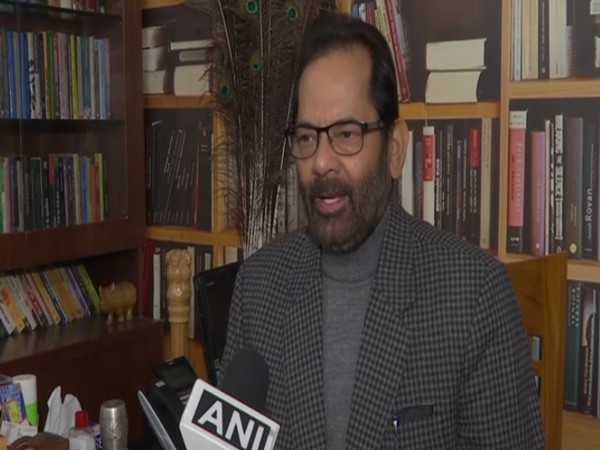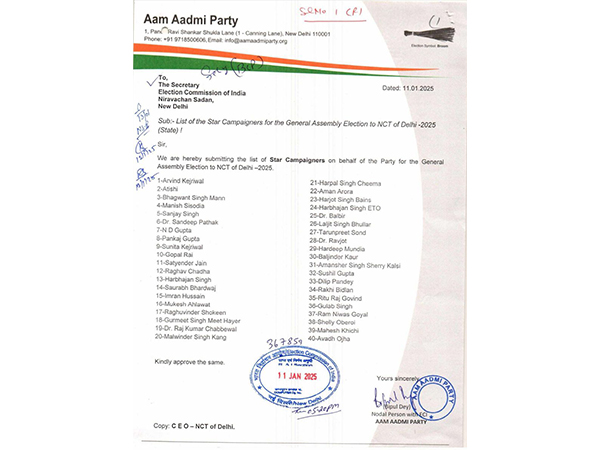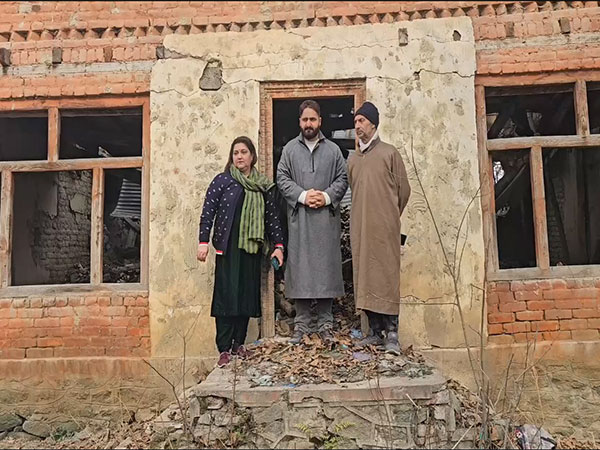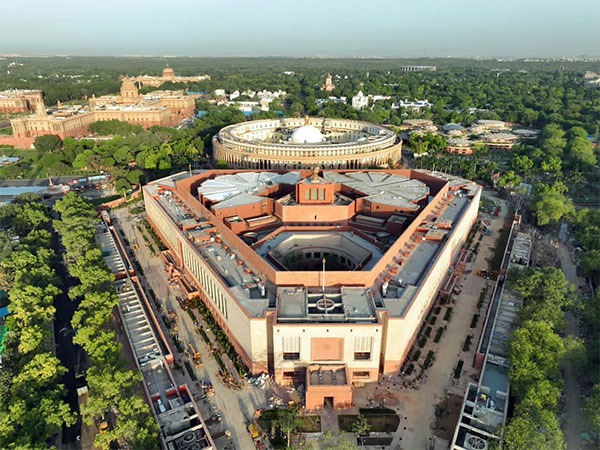
New Delhi [India], December 6 (ANI): The Ministry of Minority Affairs on Monday informed of the several schemes it has undertaken for the upliftment of the welfare and socio-economic empowerment of the six notified minority communities namely Muslims, Sikhs, Buddhists, Christians, Jains and Parsis through its education empowerment schemes, skill development schemes and infrastructure development schemes.
As per the ministry, the total number of individuals/ youths who have received the skill development training for the skill development of minorities is 6,57,802. Skill development schemes such as the ‘Seekho Aur Kamao‘ (Learn and Earn), ‘Nai Manzil‘ scheme, and ‘USTTAD’ scheme have been implemented by the Ministry.
The scheme ‘Seekho Aur Kamao‘ (Learn and Earn) or the SAK scheme, is a placement-linked skill development scheme for minorities. “SAK scheme aims to upgrade the skills of minority youth (in the age group of 14-45 years) in various modern/ traditional skills depending upon their qualification, present economic trends, and market potential, that can earn them suitable employment or make them suitably skilled to take up self-employment. The scheme targets to earmark 33 percent of the total allocation for female beneficiaries,” the ministry’s press release read.
As per the ministry, the key objective of the scheme is to impart skill training to improve employability/establish employment linkages for minority youth, school dropouts, and contribute to the human resource potential of the country to realize the national aspirations of Aatmanirbhar Bharat and Make in India.
The scheme aims to integrate the trained minority beneficiaries, socially and economically in the national mainstream.
The ‘Nai Manzil‘ scheme was launched in 2015 and it aims to engage with poor minority youth and help them obtain sustainable and gainful employment opportunities that can facilitate them to be integrated with mainstream economic activities.
As per the ministry, the scheme targets to mobilize youth from minority communities who are school dropouts and provide them with formal education and certification up to level 8th or 10th through the National Institute of Open Schooling (NIOS) or other State open schooling systems.
As part of the program, the ministry said that it also intends to provide integrated skill training to the youth in market-driven skills and further provide placements to at least 70 percent of the trained youth in jobs which would earn them basic minimum wages and provide them with other social protection entitlements like Provident Funds, Employee State Insurance (ESI), etc. Skill training is conducted in modern skills.
“The scheme targets school dropout, minority youth from BPL families in the age group of 17-35 years. At least 30 percent of the beneficiary seats are targeted to be earmarked for girl/women candidates and 5 percent of the beneficiary seats will be earmarked for persons with a disability belonging to the minority communities,” the release read.
Further, the ministry informed that its ‘USTTAD’ scheme (Upgrading the Skills and Training in Traditional Arts/Crafts for Development), launched in 2015, targets capacity building and upgrading of the traditional skills of master craftsmen/artisans.
“The scheme works towards the preservation of the rich heritage of the traditional arts and crafts, and targets documentation of the identified traditional arts/crafts of minorities; setting up of standards for traditional skills; training of minority youths in various identified traditional arts/crafts through master craftsmen; and development of national and international market linkages for artisans,” the ministry informed in the release.
The training component of the scheme was started in 2016-17. The scheme also organizes ‘Hunar Haat’, which is an effective platform wherein opportunity is given to minority artisans/craftsmen and culinary experts from across the country to showcase and market their finest handicraft and indigenous products. The Hunar Haats have generated employment and employment opportunities for artisans.
Also, the ministry said that the Maulana Azad Education Foundation (MAEF) implements the Gharib Nawaz employment Scheme and the National Minorities Development and Finance Corporation (NMDFC) implements Kaushal Se Kushalta Scheme and Mahila Samridhi Yojana.
“Under skill development scheme of Seekho Aur Kamao, 84,779 women/girls from minority groups have been trained for Modular Employable Skills (MES) courses, since its inception till 2016. From 2017-18 onwards, the Ministry adopted Common Norms with NSQF compliant courses. Also, under Gharib Nawaz Employment Scheme of MAEF, 26400 women have been trained for Modular Employable Skills (MES) courses,” the ministry said. “381 Project Implementation Agencies (Institutions/ Societies/ Organisations/ NGOs) have been working with skill development schemes of the Ministry,” it added.
This information was given by the Union Minister for Minority Affairs Mukhtar Abbas Naqvi in a written reply in the Rajya Sabha today. (ANI)













